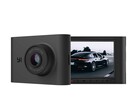A recent poll that was posted by Ice universe on Twitter revealed that — 90/120 Hz, 2K/4K display aside — most people want to see Samsung adding "a revolutionary camera" to its flagships. These two options alone gathered 70 percent of the votes (39 percent for the display and 31 for the camera), followed by a "crazy CPU, GPU, NPU" with 17 percent and better looks (13 percent).
A recent image showing the sensors of both Huawei and Samsung flagships side by side reveals that the Chinese OEM is far ahead of its competitor in terms of hardware, so Samsung should move forward and do something. When placing side to side the image sensors of like the Huawei P9 and Samsung Galaxy S7 Edge or the Huawei P10 and Samsung Galaxy S8+, Huawei's flagships have no obvious advantage.
On the other hand, the sensors used by the Huawei P30 Pro and Huawei Mate 30 Pro are definitely one big step ahead of the camera hardware used by Samsung for the Galaxy S10+ and Galaxy Note 10+ — a 1/1.7-inch 40 MP sensor and two 40 MP sensors with sizes of 1/1.7 inches and 1/1.55 inches compared to the same 12 MP 1/2.55-inch sensor does not look like a fair fight.
While the hardware technology gap mentioned above is impressive, Samsung seems to catch up a lot thanks to its camera software. Right now, the leading mobile device on DxOMark — when it comes to its main camera performance — is the Huawei P30 Pro, which got the same score as the 5G Samsung Galaxy S10. However, the Samsung flagship has a better score in the selfie camera department. Surprising enough, the best performer in this niche is the Asus ZenFone 6.
These being said, the only possible conclusion is that Huawei still needs to put a lot of work on its camera software and Samsung has to do the same with its hardware. Do you think that future flagships should focus on larger hardware or improving the software algorithms that handle the data captured by these sensors?
Source(s)
Ice universe (on Twitter)





























